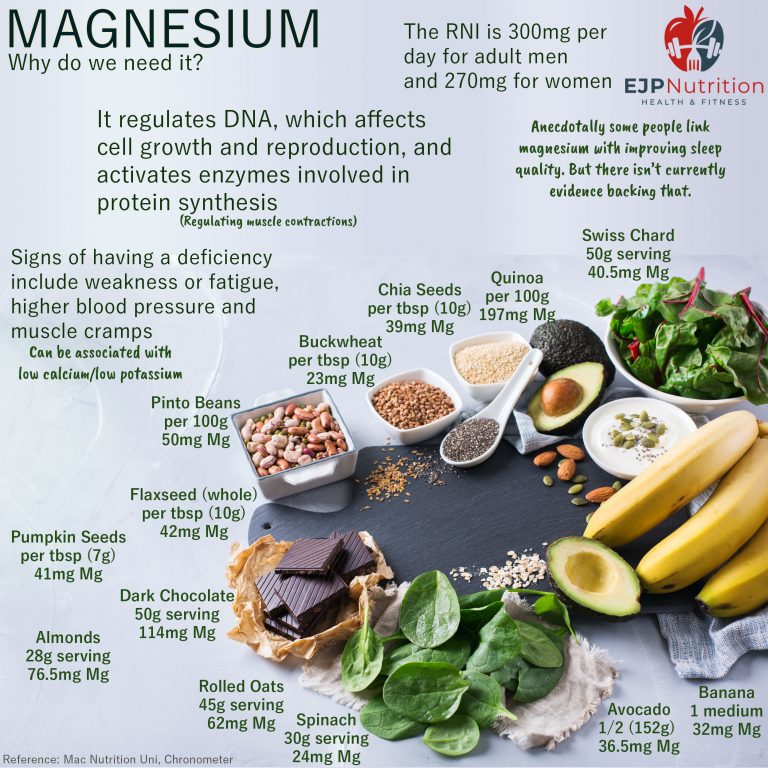Magnesium is the fourth most abundant mineral in the human body. It’s an essential electrolyte, that we need for health. As it’s involved in many functions it also contributes to disease prevention. Magnesium is found in a huge range of foods. These include whole grains, nuts, seeds, legumes and green leafy vegetables. The adult RNI in the UK for men is 300mg per day, and for women is 270mg per day.
What does it do?
Our DNA is regulated by Mg, which affects cell growth and reproduction. Mg activates enzymes involved in protein synthesis. It plays a role in maintaining normal nerve and muscle function, including muscle contractions. It contributes to the regulation of blood pressure, bone integrity and glucose and insulin metabolism. These are just some of its functions, but you can see an idea of how much its involved in!
Deficiencies
Being deficient in magnesium has been associated with a number of chronic diseases. These include migraine headaches, Alzheimer’s diseases, stroke, hypertension, cardiovascular disease, type 2 diabetes, insulin resistance and osteoporosis.
Signs of deficiency include; weakness or fatigue, higher blood pressure, muscle cramps. Having low levels are associated with low calcium and low potassium. These three minerals play a role in regulating a normal heart rhythm.
Just one element
We should note here magnesium is just one mineral, found in of nutrient dense foods. Foods that often contain a combination of beneficial compounds. Individuals who consume high amounts of dietary magnesium potentially are more health conscious. So the disease associations above are just that, associations. We can’t say a reduced risk is simply down to the magnesium, only that’s one part of a much bigger picture.
Magnesium from dietary intake has been declining over the last century. This could be due to higher intakes of processed foods. That means, you guessed it, we’re back to talking about having an overall balanced diet that includes lots of vegetables, whole grains, legumes & fruit. Supplementation may be beneficial for some individuals with low levels too.
References: Mac Nutrition Uni, Grober et al 2015, Volpe 2013
(Reposted from Instagram)


